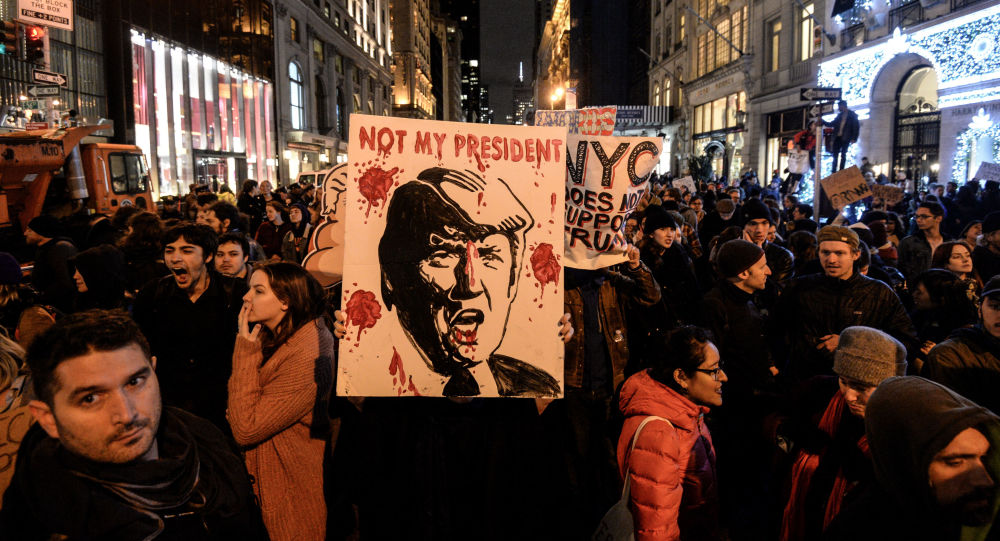Vitriol only intensifies after bitter election
When Joe Gavish saw the truck, with its “I Hate Muslims” bumper sticker and enormous flapping Trump flags, he knew it would catch fire on social media. So he quickly posted a video on Facebook, along with a plea to “check this guy out.”
But he did not quite expect the level of outrage provoked by the video, which went up the afternoon after Election Day and within about 24 hours had racked up 300,000 views. Strangers posted expletive-laden comments and dug up the truck owner’s name and address. Other commenters suggested the driver had good reason for his views. By Wednesday night, Gavish had deleted the video.

“I felt like it was just spreading anger,” said Gavish, 27, owner of Weard Beard Trading Co., a gemstone firm in Brooksville, Fla. “I hope this country is heading in a good direction. I’m just not sure right now.”
Three days since businessman Donald Trump won the presidency, it is clear that the animosity wrought by a historically divisive election did not simply die in its wake, but may have intensified.
U.S. cities have been convulsed by anti-Trump protests. Swastikas, racial slurs and personal threats have appeared on public buildings and dorm room doors. And online, the vicious word-slinging between supporters of the two candidates has escalated to include videotaped accounts of personal confrontation and retribution.






